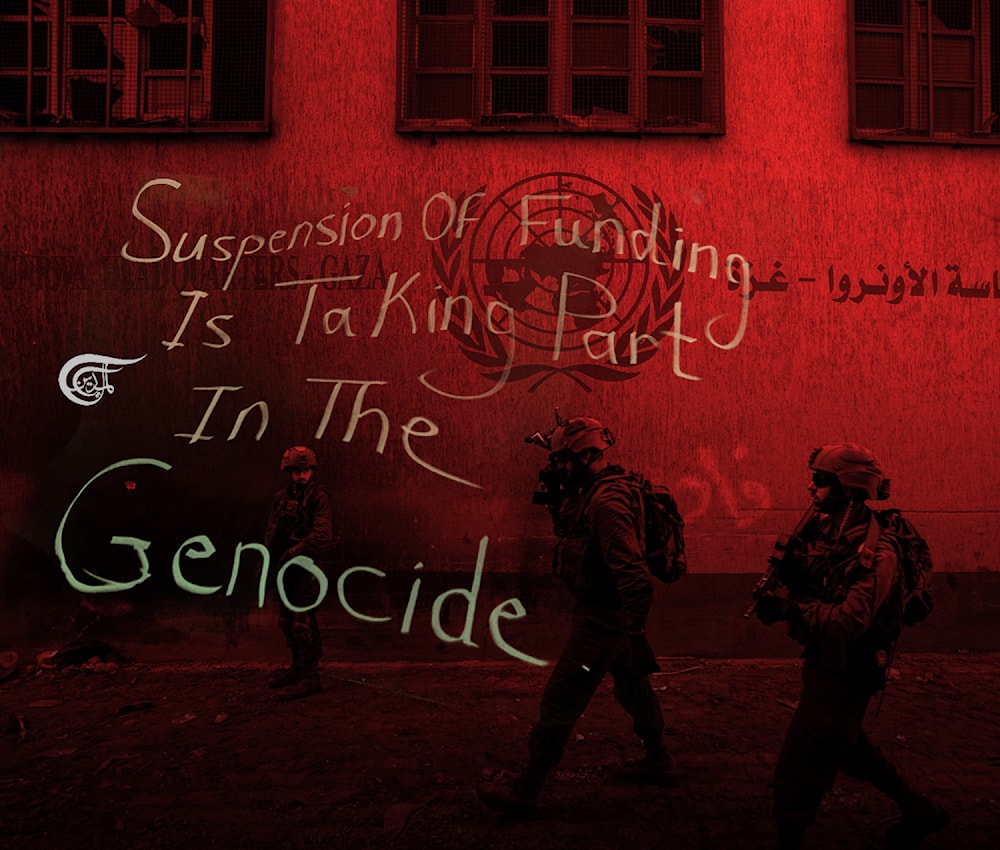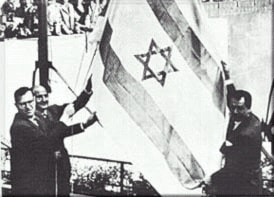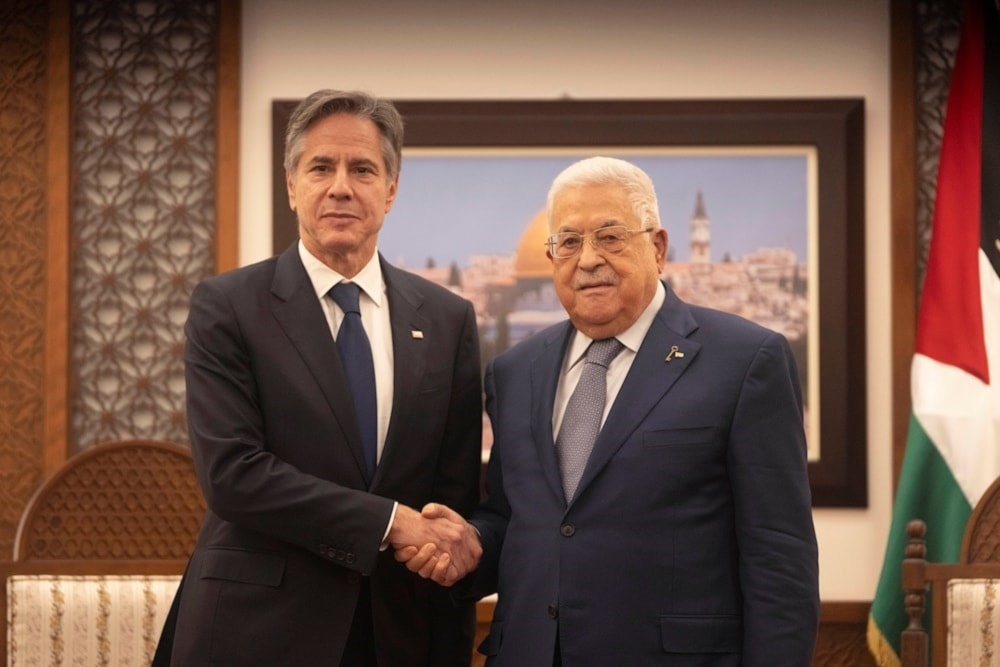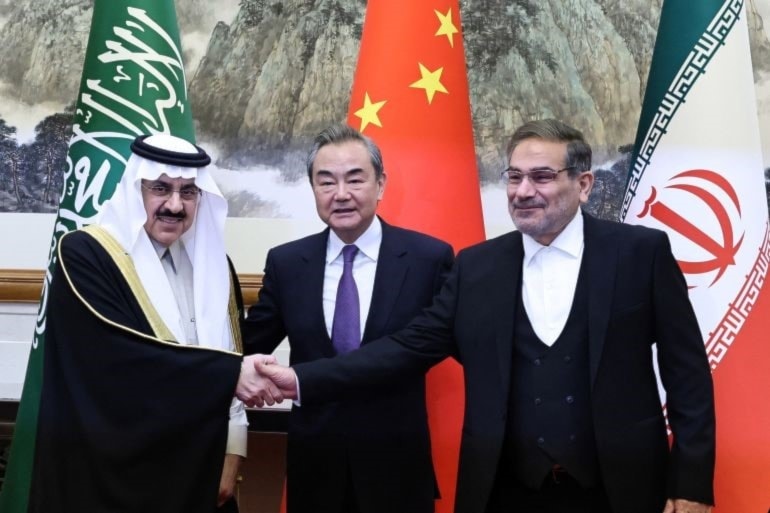UNRWA Funding Cuts: A Promising Development
Why the drastic reduction in UNRWA funding could be a positive development for the future of the Palestinian people and a Palestinian state.
-

This latest development begs the question: why are the Palestinian people reliant on the West for their daily bread, medicine, and water? (Illustrated by Hadi Dbouk to Al Mayadeen English)
On the 26th of January, as the judges of the International Court of Justice made their final deliberations, the Israelis, rather than paying attention to the recommendations ordering them to protect human life in Gaza and follow measures meant to stave off an impending genocide, were already planning a vengeful retaliation against the multilateral system that brought them to court.
While head judge Joan Donoghue read the six provisional measures ordering "Israel" to “refrain from acts under the Genocide Convention, prevent and punish the direct and public incitement to genocide, and take immediate and effective measures to ensure the provision of humanitarian assistance to civilians in Gaza,” "Israel" claimed it had documents proving the complicity of 12 UNRWA employees in the Al Aqsa Flood operation on October 7th.
The Israelis initially claimed that the findings were borne out of prisoner interrogations, only to reverse course once accused of potentially using torture to extract false confessions from detainees – something "Israel" is widely known for – and claim that the findings came from “intelligence information, documents, and identity cards seized during the course of the fighting.”
Later on the 29th, an article by the Wall Street Journal corroborating the findings was published. The author of the article, Carrie Keller-Lynn, failed to mention that she had served with the IDF, and is credited with creating the social media strategy for the IDF during the 2009 war on Gaza.
The Wall Street Journal is facing criticism for publishing an article written by a former Israeli soldier that criticizes #UNRWA and justifies cutting funds to the organization in many countries.
— Al Mayadeen English (@MayadeenEnglish) February 1, 2024
The ex-Israeli soldier, identified as Carrie Keller-Lynn, reportedly has close ties… pic.twitter.com/iG98o8Vj1d
Upon hearing "Israel’s" accusations, despite counterclaims by Channel 4 News, the Financial Times, and Sky News pointing to a lack of evidence provided by the Israelis, and despite the fact that UNRWA immediately fired those still alive amongst the list of 12 employees, 13 of the top 20 UNRWA donors suspended funding to the agency in a coordinated series of press releases. The suspensions left UNRWA with a budget diminished by 80%.
These claims against a handful of employees from an agency that employs 13,000 people in Gaza have already had a catastrophic effect on civilians. Across the West Bank, Gaza, Lebanon, Jordan, and Syria, UNRWA operates 706 schools with 550,000 students, 137 health centers that are visited by 7,000,000 patients a year, and provides food aid to 1.7 million Palestinians, 1.2 million of which are in Gaza, according to former UNRWA spokesperson Christopher Gunness.
UNRWA does not have a strategic reserve from which it can sustain its operations. The cut in funding will be felt as soon as March in the form of salary cuts, shuttered schools and primary healthcare centers, and rampant hunger that is already on global display in Gaza.
Why are Western countries UNRWA’s largest donors?
This latest development begs the question: why are the Palestinian people reliant on the West for their daily bread, medicine, and water? Why are the Palestinian people and leadership held hostage by the Western countries that brought them so much misery and desperation in the first place?
Back in 1947, the UN committed its original sin against the Palestinian people by drawing up a lopsided partition plan that gave 29% of the population that owned less than 6% of the land 56% of the entirety of Palestine. That partition plan, resolution 181, was voted on by a minority of nations that had the privilege of political representation in the General Assembly halls of the United Nations’ New York Headquarters at the conclusion of WWII. 33 nations – mostly Western – out of 55 the nations in the UN at the time voted in favor of the partition plan and thus the zionist state had its first artificial heart beat.
-

Israeli delegation to the United Nations celebrates UNGA Resolution 181
Two years on, as a response to the Nakba, the United Nations sought to placate the now 750,000 exiled Palestinians by creating the UN Relief and Works Agency for Palestine Refugees in the Near East. The agency’s funding, from its inception, largely came from the United States and European Union nations. However, this funding was not benevolent. Every donated dollar came with chains attached, including the greatest condition without which funding would not be an option: UNRWA must be politically neutral.
This neutrality imposed on a Palestinian people – who’s struggle and suffering is nothing but political – would manifest itself throughout the history of the agency, but most strongly under the Trump administration. In 2018, after succumbing to Netanyahu’s constant pleas, Trump cut US funding to UNRWA. Funding was not restored until the UNRWA educational curricula were stripped of the subjects of Palestinian history and Palestinians geography, and the agency passed a number of audits and inspections.
The Eurovision connection
On the 7th of February, the same day "Israel" escalated its war in Khan Yunis, and the same day Israelis blocked aid from entering the immiserated strip, "Israel" announced its pick for Eurovision; Eden Golan, a 20-year-old raised in Russia.
In February of 2022, a day after Russia’s invasion of Ukraine commenced, Eurovision announced that Russia would be barred from participating in the competition. "Israel", on the other hand, is still allowed to participate in the 2024 competition despite having killed 27,000 Palestinians and razed the four cities of Gaza to the ground.
-

Thumbnail from 2023 Israeli Eurovision singer Noa Kirel performance
This again begs the question: why are Palestinians surprised by the aggressive and unjust stances that the collective West has repeatedly taken towards them? Why are Palestinians reliant on Berlin, London, and Paris for their survival? Should they expect neutrality or fairness from those who welcome their murderers into their cultural competitions?
Moving forward
For the true liberation of Palestine to be possible, the current status quo must come to an end. Although the cuts in funding have been and will be harsh for the Palestinians already suffering in Gaza, and the West Bank, the long-term benefits are immeasurable.
In the short run, the West loses its last leverage with which it has humiliated the Palestinians for decades. This shock to the system is bound to bring forward a more robust Palestinian resistance movement that is not beholden to Western cheque books, and most certainly a shake up of the decrepit Palestinian leadership.
-

88-year-old Mahmoud Abbas shakes Anthony Blinken’s hand in Ramallah, Occupied West Bank
In the long run, different regional and global nations will step in to fill the gap left by the West. China has been actively pursuing peace and development in the Middle East as exemplified by the peace deal it negotiated between Iran and Saudi Arabia. China has also shown increased interest in the plight of the Palestinians, an issue that symbolizes the rot of American hegemony on the global stage.
-

Chinese diplomat Wang Yi, brings together his Saudi and Iranian counterparts in Beijing summit
In an effort to take on its role as a counter hegemon in a burgeoning multi-polar world, China will be expected to share the burden of the Palestinian cause by funding UNRWA along with regional actors like Saudi Arabia, Turkey, and Iran.
Only with this full divorce from the Western seats of power that have caused so much suffering to the Palestinians and the broader peoples of the region, will the ability to truly oppose their oppression be finally unleashed.

 Hekmat Aboukhater
Hekmat Aboukhater
 7 Min Read
7 Min Read











